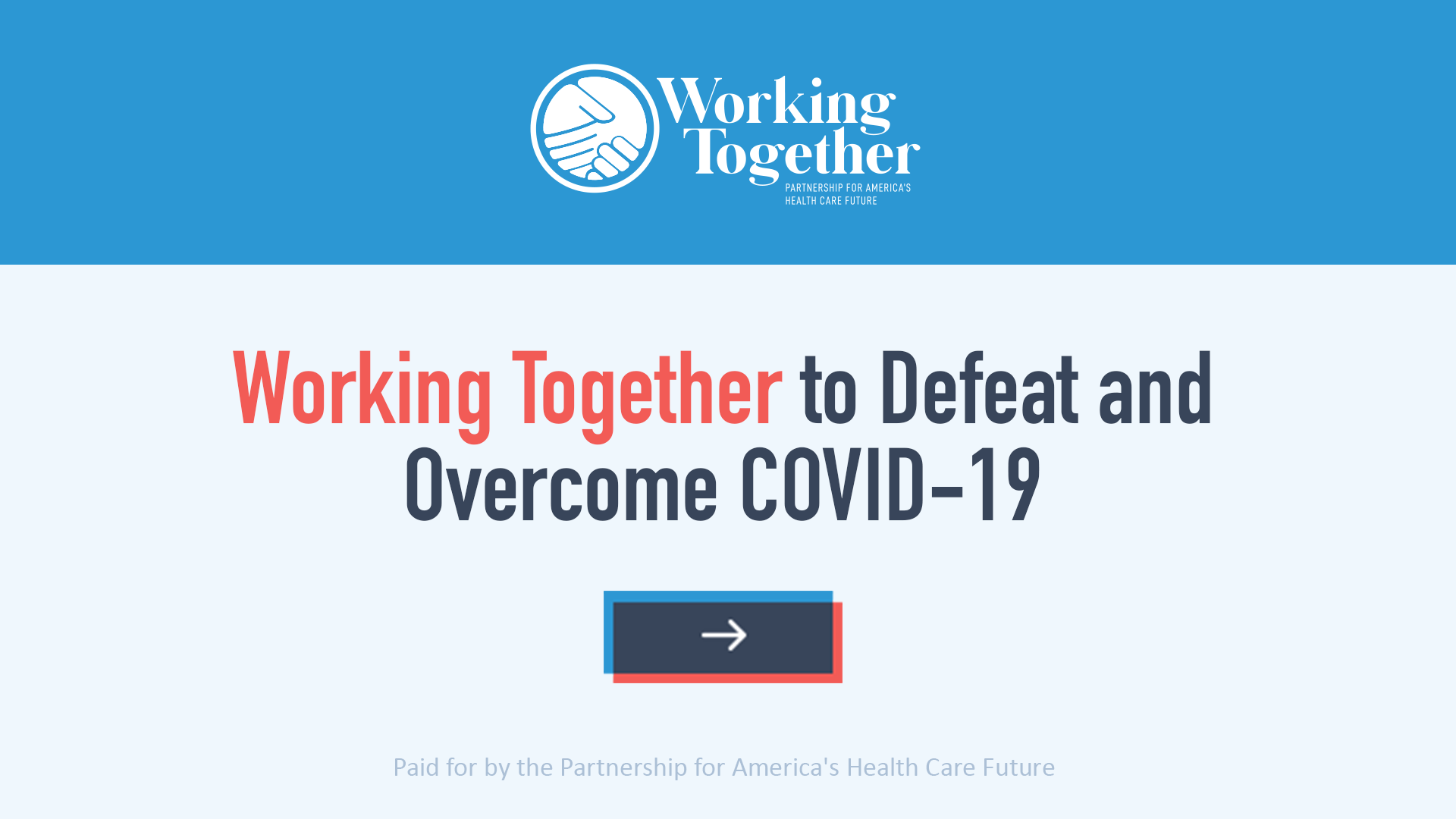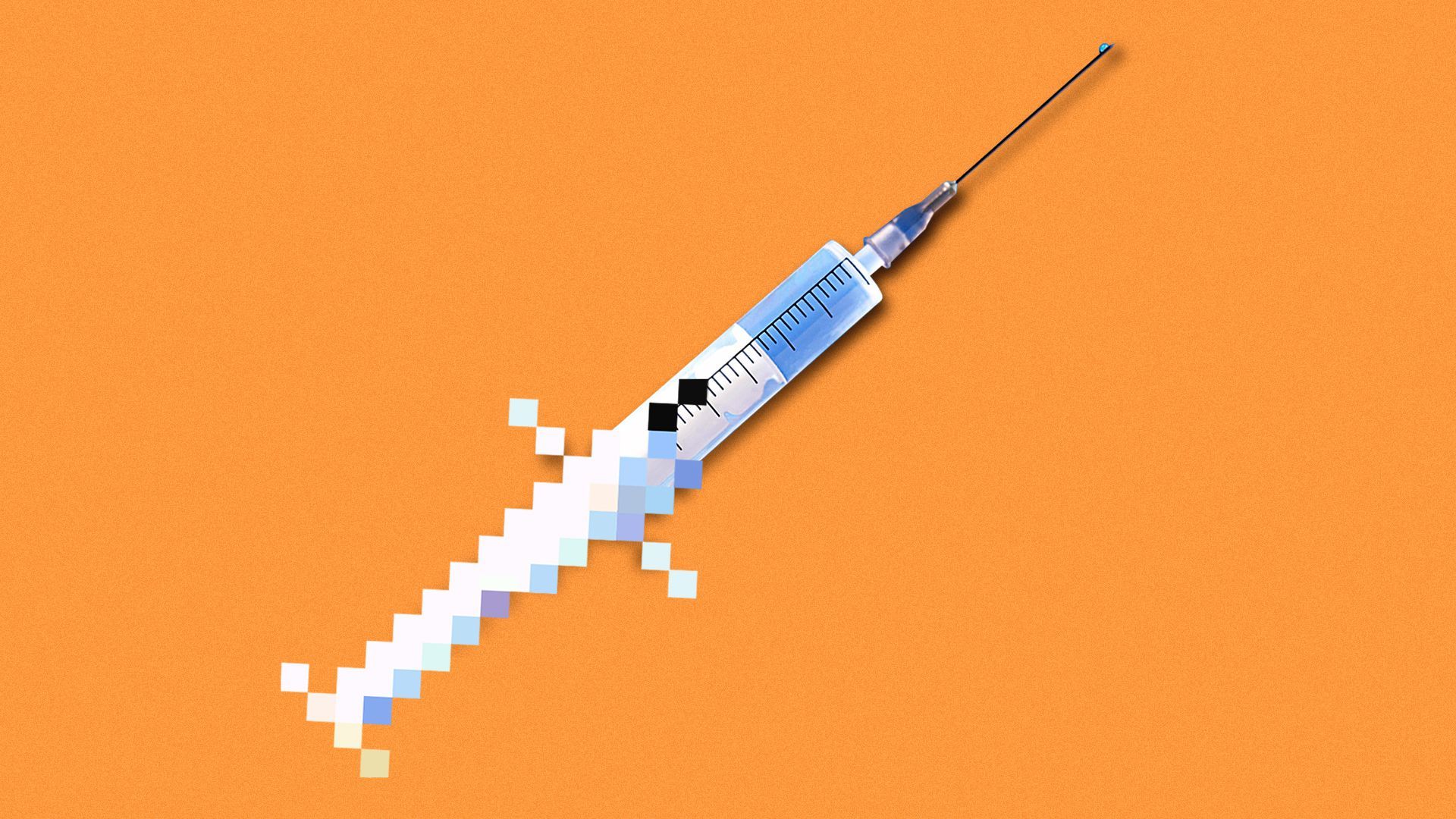| | | | | | | Presented By Partnership for America's Health Care Future | | | | Vitals | | By Caitlin Owens ·Dec 16, 2020 | | Good morning. Today's word count is 899, or a 3-minute read. | | | | | | 1 big thing: Rural America will have a harder time getting vaccinated |  | | | Illustration: Aïda Amer/Axios | | | | Rural America's weak health care infrastructure, combined with vaccine hesitancy and the complexities of the distribution process, will make it much harder to vaccinate rural America against the coronavirus. Why it matters: Rural areas are getting slammed by the virus, with some of the highest caseloads and most overworked hospitals anywhere in the country. The big picture: Rural health systems have long grappled with underfunding and a shortage of workers. Those same challenges will also complicate vaccination efforts. - "It is just logistically easier to reach people in dense urban populations than sparse rural ones," said Josh Michaud, associate director of global health policy at the Kaiser Family Foundation.
Where it stands: Rural hospitals in several states were left out of this week's initial shipment. The Pfizer vaccine must be stored at ultra-cold temperatures that only a small number of facilities can achieve, and it ships in batches of almost 1,000 doses. What's next: Moderna's vaccine, which the FDA will likely authorize this week, has much less stringent storage requirements and will be shipped in smaller batches. But it won't solve rural America's disadvantages. - After health care workers and nursing home residents have been vaccinated, it'll be much harder to target the next round of doses, and make them easily available, in rural areas.
- "That's a much more dispersed population you're talking about," Michaud said. "You're needing more and more distribution points to reach a broader set of the population."
Between the lines: High levels of vaccine hesitancy among rural Americans add another layer of difficulty. - "There's a tension between ease of access and reaching equity," Michaud said.
What they're saying: "We aren't going to be forgotten," Carly Benton, executive director of The Mercy Ministries, told the Atlanta Journal-Constitution. "There's just going to be as much as a six-month delay to get the vaccines." |     | | | | | | 2. The brewing workplace debate over vaccines |  | | | Illustration: Sarah Grillo/Axios | | | | The next big office debate: Can employers force staff to take vaccines to return to work? Why it matters: The short answer is that employers can create such requirements, with some wiggle room, Axios' Erica Pandey reports. - The law lets both public and private organizations require vaccinations, and schools, hospitals and a host of other institutions have long done so.
- "Lawyers could argue that prior cases didn't consider a drug authorized only for emergency use by the FDA, as the early coronavirus vaccines will be. Or perhaps a more conservative-leaning Supreme Court would be open to revisiting prior precedent," per the New York Times' Andrew Ross Sorkin.
The big picture: Anthony Fauci, the country's top infectious disease expert, has said that life cannot return to normal until around 75% of America is vaccinated, but many Americans remain skeptical. The bottom line: Companies could play a key role in upping vaccination numbers by asking their employees — or even their customers — to take it. Go deeper: Sorkin spoke with executives about their thoughts on requiring worker vaccinations. |     | | | | | | 3. FDA authorizes rapid, at-home COVID test | | The Food and Drug Administration on Tuesday authorized the first over-the-counter, at-home rapid coronavirus test, which allows users to get their results from an app. The big picture: A slew of at-home tests are in development, which could make diagnostics easier and faster as the pandemic rages on, Axios' Marisa Fernandez writes. The state of play: Several companies are working on at-home test kits that deliver results digitally, the Wall Street Journal notes. - Ellume, the company that received FDA authorization for its at-home test on Tuesday, is working on a function that would let users share their results with their doctor and local health authorities.
- The FDA asked Lucira Health, which is working on a rapid test, to develop a mobile app or website for better data tracking.
- Gauss Surgical and Cellex's test would require users take a photo of their results for an algorithm's interpretation.
|     | | | | | | A message from Partnership for America's Health Care Future | | Working together to defeat and overcome COVID-19 | | |  | | | | During this critical time, America's leading doctors, nurses, clinicians, hospitals, health insurance providers, biopharmaceutical companies and employers are committed to working together to defeat and overcome COVID-19. Learn more about their efforts. | | | | | | 4. How tech is aiding the vaccine rollout |  | | | Illustration: Annelise Capossela/Axios | | | | Technology companies including IBM, Oracle, Salesforce and Microsoft are working with governments and health agencies to manage the massive task of rapidly and equitably distributing the COVID-19 vaccines, Axios' Ina Fried reports. Why it matters: With the vaccine in short supply, it's critical to make sure the supply is distributed equitably and without wasting precious doses. The big picture: For tech, it's both a business opportunity and a chance to tie the company to a critical societal need. - Yes, but: Tech could also be positioning itself for blame if there are hiccups in the system. Remember the rollout of Healthcare.gov?
Between the lines: What's tricky is there are so many players involved in getting the vaccine to the population, including the pharmaceutical companies, shippers like UPS and FedEx, state governments, local governments, hospitals, drugstore chains and individual providers. - There isn't going to be a single supply chain management system, meaning each of those players will need to build their own capability and share data with other parts of the system.
The vaccine is going to be in short supply for months, creating huge and competing demand and the need to make sure every available dose reaches someone in need. - Risks include everything from cyber and physical attacks to introduction of counterfeit vaccines, diversion of real vaccines to the black market, and mismanagement that leads to spoiled vaccines.
Go deeper. |     | | | | | | 5. Catch up quick |  | | | Illustration: Aïda Amer/Axios | | | | The Food and Drug Administration released detailed data on Tuesday showing Moderna's COVID-19 vaccine is safe and "highly effective" in preventing cases of the virus in adults. In less than a year, the pandemic shot us more than a decade ahead in the workplace transformation, Erica reports. Even if teachers are placed at the front of the vaccination line, schools won't return to normal any time soon, NYT reports. Joe Biden and his team are focused on creating bipartisan faith in vaccines, and avoiding the polarization that has emerged around masks, per WashPost. Some Midwestern states are seeing a drop in new coronavirus cases, an encouraging sign, AP reports. California has ordered 5,000 body bags as the state undergoes its "most intense" COVID-19 surge to date, Gov. Gavin Newsom said Tuesday. |     | | | | | | A message from Partnership for America's Health Care Future | | Working together to defeat and overcome COVID-19 | | |  | | | | As we work together to defeat and overcome COVID-19, America's health care leaders are helping American families get healthy and stay healthy by expanding access to the health coverage and care they need during this unprecedented time. Learn more. | | | | | | Axios thanks our partners for supporting our newsletters.
Sponsorship has no influence on editorial content. Axios, 3100 Clarendon Blvd, Suite 1300, Arlington VA 22201 | | | You received this email because you signed up for newsletters from Axios.
Change your preferences or unsubscribe here. | | | Was this email forwarded to you?
Sign up now to get Axios in your inbox. | | | | Follow Axios on social media:    | | | | | |








No comments:
Post a Comment